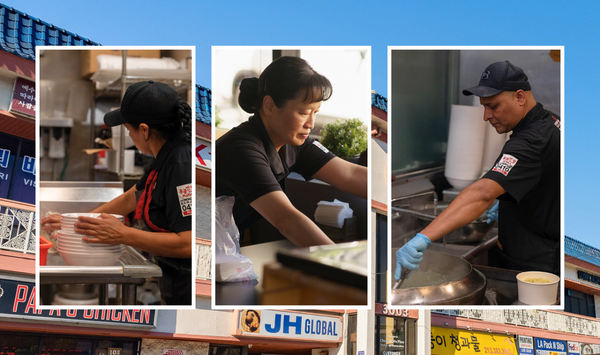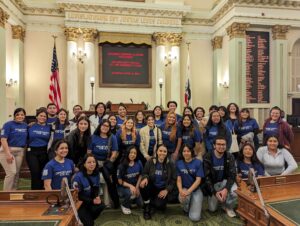New Report on Koreatown Restaurant Workers’ Labor & Housing Conditions

A new report authored by the UCLA Labor Center and the Koreatown Immigrant Workers Alliance (KIWA), “Overcooked & Underserved: The Challenges of Koreatown’s Restaurant Workers,” dives into the labor and housing conditions experienced by the predominantly-immigrant workforce staffing Koreatown’s booming restaurant industry.
Published in partnership with researchers at Cal Poly Pomona and San Diego State University, the report identifies Koreatown as a thriving pillar of Los Angeles’ food and nightlife scene—with 704 restaurants and eating places—sustained by nearly 9,700 workers.
Using government data and an analysis of 338 worker surveys and 12 worker interviews, the report’s authors find that while employment in larger Koreatown establishments has accelerated, the neighborhood’s restaurant workers experience low wages and unfair wage practices. Notably, 72% of restaurant workers are full-time and 72% earn low wages. According to the report, workers in Koreatown restaurants also face a wage ceiling.

In addition, the research reveals that Koreatown residents struggle with housing risks: Restaurant worker households are at, or near, poverty, and they are also impacted by housing insecurity. Almost half (46%) of Koreatown restaurant workers are burdened by rent, and many live in overcrowded conditions.

To address these issues, the authors recommend establishing an industry standards board to set and enforce minimum standards in Koreatown’s restaurant sector; developing a Koreatown commercial corridor ordinance; strengthening partnerships between worker centers and enforcement agencies; expanding workplace public health councils programs; and integrating workplace justice into anti-displacement and homelessness prevention strategies.
The report was authored by Brady Collins, AJ Kim, Saba Waheed, and Michele Wong.


